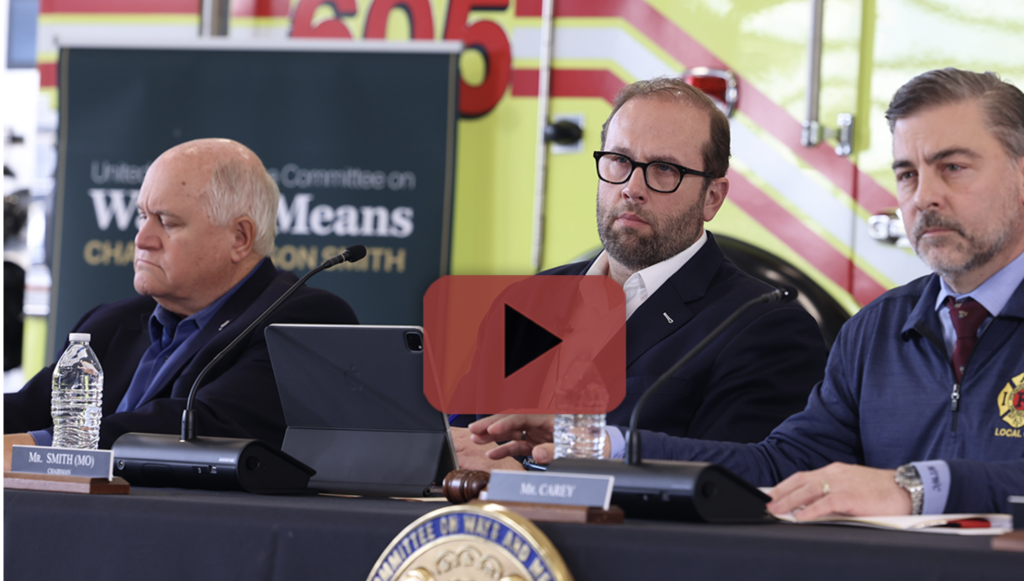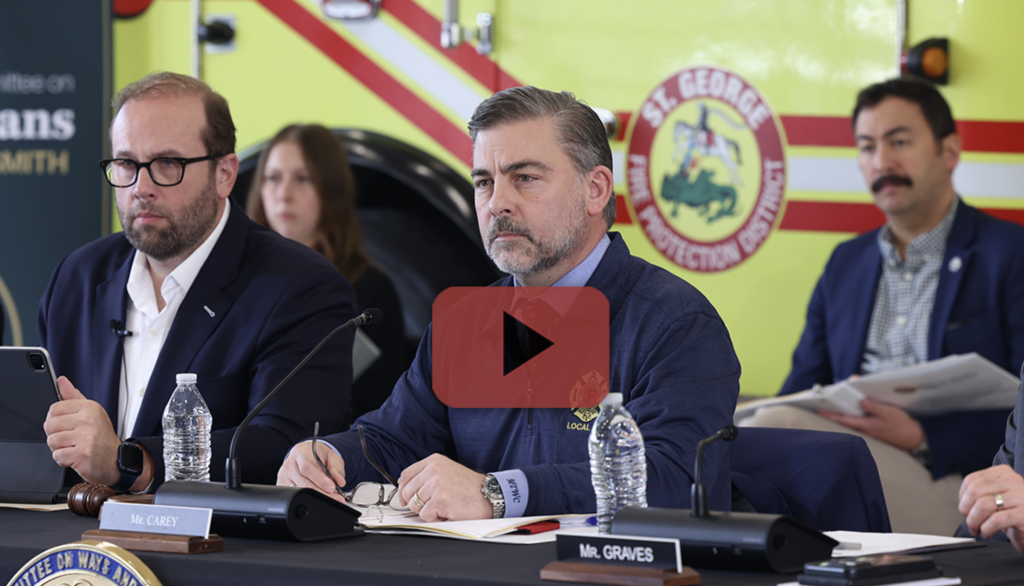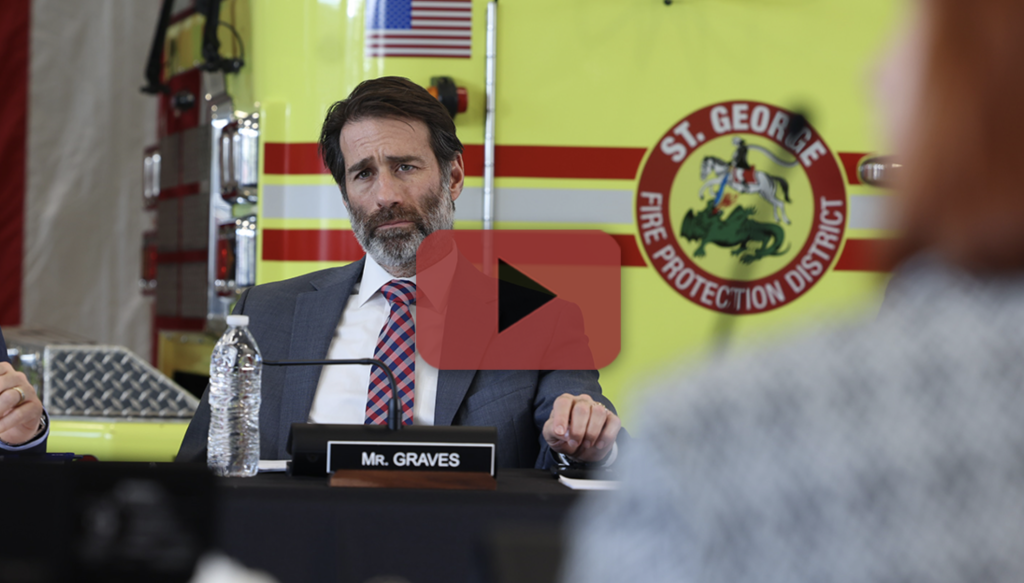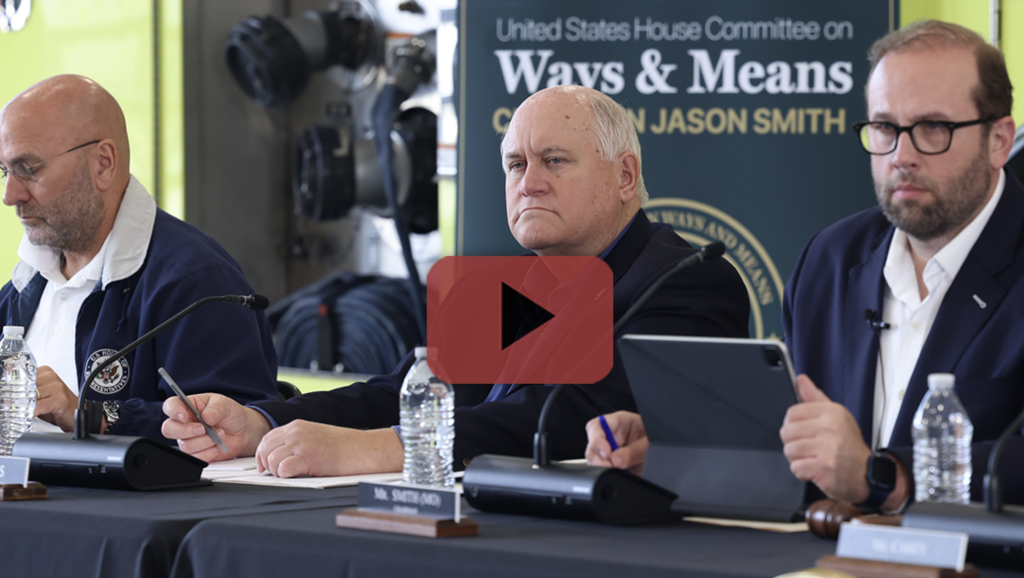Four Key Moments from Social Security Subcommittee Hearing on the Windfall Elimination Provision (WEP) and the Government Pension Offset (GPO)
BATON ROUGE, LOUISIANA – Inside a firehouse, local and state employees shared with the Ways and Means Social Security Subcommittee how Social Security’s Windfall Elimination Provision (WEP) and Government Pension Offset (GPO) have threatened their retirement security. Americans affected by these unfair policies include firefighters, teachers, nurses, police officers, and trash collectors. Not only do the WEP and GPO unfairly reduce many seniors’ retirement benefits, but they also often come as a surprise. Several witnesses told the Subcommittee that retirees are not alerted that their benefits are subject to either policy until the end of their career and the start of retirement.
The hearing was held at St. George Fire Department Station 60 and witnesses included a retired firefighter, teacher, state employee, and the national head of the Fraternal Order of Police.
“Disbelief:” Public Servants Often Only Learn Their Social Security Is In Jeopardy During Watercooler Conversations
WEP and GPO not only unfairly reduce some public servants’ Social Security benefits, but many who are affected don’t learn about these reductions until retirement. Ways and Means Committee Chairman Jason Smith (MO-08) asked each witness when they discovered WEP or GPO would affect their Social Security check.
Chairman Smith: “As I mentioned in my opening statement, this challenge facing our community of retired public servants is an issue that is often unknown, until one retires, and can be equally challenging to address after the fact…I’d like to give each of you the opportunity to just answer a few questions…When did you learn about these two provisions within the Social Security benefits program and the impact that they had on your retirement?”
Patrick Yoes, Fraternal Order of Police president: “I’m probably like most people…I think those that are in my category, just didn’t quite grasp what we were looking at and the impact that it would eventually have on me. It wasn’t until later on in my career, I realized that the Windfall Elimination Provision, Government Pension Offset was going to be something that was going to drastically impact my retirement.”
Smith: “Do you know how far, how long into your career?”
Yoes: “It wasn’t until the last part of my career. I did 36 years. So I would say that I probably became more aware of it, only because of my position in the Fraternal Order of Police, because I was hearing from so many members…I think most of us had the disbelief that the government would not do that to us. Government protects us. The whole system was built on fairness, and there’s nothing fair about this at all.”
“I’m Just Not Going to Retire:” Seniors Delay Retirement, Take Second Jobs to Compensate for WEP and GPO
Seniors affected by WEP could lose more than $500 every month and almost 70 percent of seniors affected by GPO lose their entire Social Security spousal benefits. Witnesses shared their stories of working into their late 70s, selling their home, and, in some cases, even now returning to work, to supplement their lower Social Security benefit. Ann Dugas, a retired Louisiana state employee, told Rep. Mike Carey (OH-15) that she knew she had to go back to work as soon as she found out how WEP affected her.
Rep. Carey: “When you found out just how much of the WEP or the GPO would affect you and your family, how did you respond? Did your retirement planning change? Were you forced to adjust your spending habits, rethink or delay your retirement, or question your standard of living?”
Ann Dugas, retired Louisiana state employee: “I visited the retirement office for the state. That’s when, they told me that they could give me an estimate of my retirement benefit, but then I would need to go to Social Security…I went to the Social Security office also, and I was given an estimate of how this would affect my Social Security. At that time, when I was told that it would more than likely be completely eliminated, that’s when I made the decision: I’m just not going to retire.”
WEP & GPO Affect Shortages of Teachers, Firefighters, and Police Officers
During the hearing, witnesses warned that WEP and GPO could make future firefighters, teachers, police officers, among others, reconsider becoming public servants. Patrick Yoes, president of the 373,000 member Fraternal Order of Police, testified how these two policies could hurt police departments trying to fill empty law enforcement officer positions. Rep. Garret Graves (LA-06) asked a retired Louisiana teacher whether she would choose to teach had she known WEP and GPO would cause her Social Security benefit to be insufficient for retirement.
Rep. Graves: “Ms. Porter, let me ask you a question. Thirty-eight years you taught. I’m married to a teacher, and I think it is one of the most important professions…Thinking about our investment in the next generation: knowing what you know now, would you have become a teacher?”
Paula Porter, retired Louisiana teacher: “Especially if I had known what my future held. When my husband died, I remember my daddy saying, ‘If we had only known…’I was very fortunate. My father paid for me to go to college. I didn’t have to work my way through college. But he said, ‘We should have found something else.’”
“I Don’t Feel Like We Were Informed:” Social Security’s Lack of Information About WEP & GPO Derails Retirement Planning
Not knowing until too late that his spouse’s Social Security benefits would be reduced by WEP or GPO, retired firefighter Bernie Piro shared with Rep. Ron Estes (KS-04) how his previous retirement planning and decisions could lead to his wife being worse off, all because a lack of information from Social Security about WEP and GPO.
Rep. Estes: “Do you feel the Social Security Administration provided you with the tools to be prepared for retiring regarding WEP and GPO?”
Bernie Piro, retired Louisiana firefighter: “No, sir. I don’t. I don’t feel like we were informed.They need to share that responsibility with the retirement system, as well as the employer – the fire department, school boards, state agencies, law enforcement. If you’re not made aware of this, the impact, it can be a detriment on how you select your retirement and what benefits you’re going to leave your spouse. …[Social Security] dropped the ball.”




